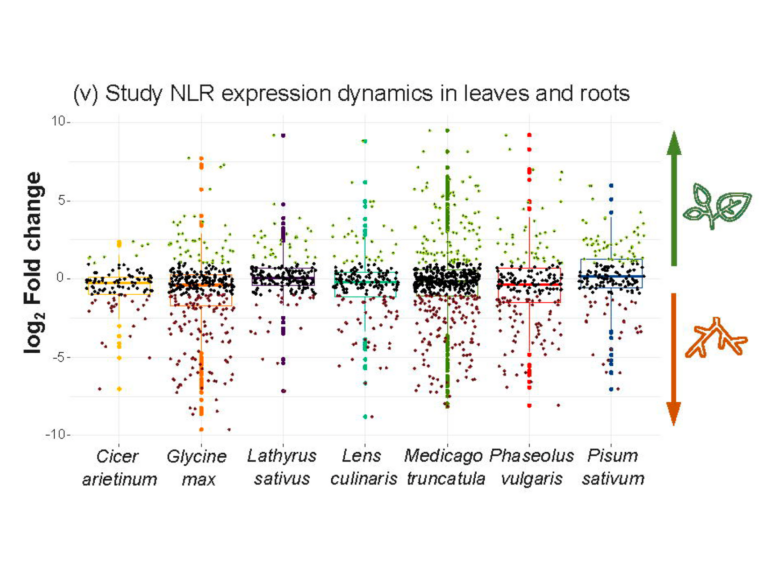Assessment of transcriptional reprogramming of lettuce roots in response to chitin soil amendment
Chitin soil amendment is known to improve soil quality, plant growth and stress resilience, but the underlying mechanisms are not well understood. In this study, we monitored chitin's effect on lettuce physiology every two weeks through an eight-week growth period, analyzed the early transcriptional reprogramming and related metabolomic changes of lettuce, in response to crab chitin treatment in peat-based potting soil. In commercial growth conditions, chitin amendment still promoted lettuce growth, increased chlorophyll content, the number of leaves and crop head weight from week six. The flavonoid content in lettuce leaves was altered as well, showing an increase at week two but a decrease from week six. Transcriptomic analysis showed that over 300 genes in lettuce root were significantly differentially expressed after chitin soil treatment. Gene Ontology-term (GO) enrichment analysis revealed statistical overrepresentation of GO terms linked to photosynthesis, pigment metabolic process and phenylpropanoid metabolic process. Further analysis of the differentially expressed genes (DEGs) showed that the flavonoid pathway was mostly upregulated whereas the bifurcation of upstream phenylpropanoid pathway towards lignin biosynthesis was mostly downregulated. Metabolomic analysis revealed the upregulation of salicylic acid, chlorogenic acid, ferulic acid, and p-coumaric acid in chitin-treated lettuce seedlings. These phenolic compounds (PCs) mainly influence the phenylpropanoid biosynthesis pathway and may play important roles in plant defense reactions. Our results suggest that chitin soil amendments might activate induced resistance by priming lettuce plants and promote lettuce growth via transcriptional changes.


